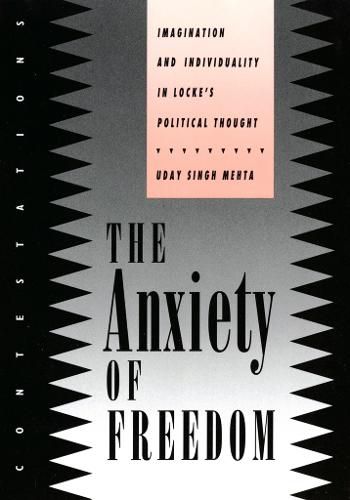Readings Newsletter
Become a Readings Member to make your shopping experience even easier.
Sign in or sign up for free!
You’re not far away from qualifying for FREE standard shipping within Australia
You’ve qualified for FREE standard shipping within Australia
The cart is loading…






The enduring appeal of liberalism lies in its commitment to the idea that human beings have a natural potential to live as free and equal individuals. The realization of this potential, however, is not a matter of nature, but requires that people be molded by a complex constellation of political and educational institutions. In this eloquent and provocative book, Uday Singh Mehta investigates in the major writings of John Locke the implications of this tension between individuals and the institutions that mold them. The process of molding, he demonstrates, involves an external conformity and an internal self-restraint that severely limit the scope of individuality. Mehta explores the centrality of the human imagination in Locke’s thought, focusing on his obsession with the potential dangers of the cognitive realm. Underlying Locke’s fears regarding the excesses of the imagination is a political anxiety concerning how to limit their potential effects. In light of Locke’s views on education, Mehta concludes that the promise of liberation at the heart of liberalism is vitiated by its constraints on cognitive and political freedom.
$9.00 standard shipping within Australia
FREE standard shipping within Australia for orders over $100.00
Express & International shipping calculated at checkout
The enduring appeal of liberalism lies in its commitment to the idea that human beings have a natural potential to live as free and equal individuals. The realization of this potential, however, is not a matter of nature, but requires that people be molded by a complex constellation of political and educational institutions. In this eloquent and provocative book, Uday Singh Mehta investigates in the major writings of John Locke the implications of this tension between individuals and the institutions that mold them. The process of molding, he demonstrates, involves an external conformity and an internal self-restraint that severely limit the scope of individuality. Mehta explores the centrality of the human imagination in Locke’s thought, focusing on his obsession with the potential dangers of the cognitive realm. Underlying Locke’s fears regarding the excesses of the imagination is a political anxiety concerning how to limit their potential effects. In light of Locke’s views on education, Mehta concludes that the promise of liberation at the heart of liberalism is vitiated by its constraints on cognitive and political freedom.